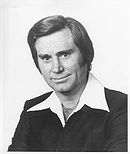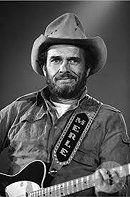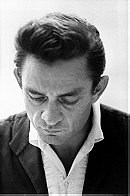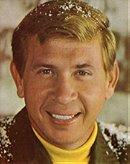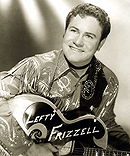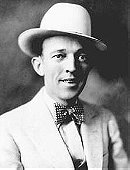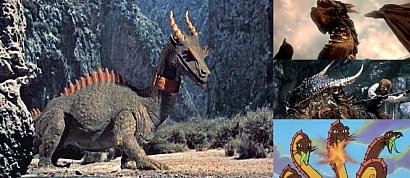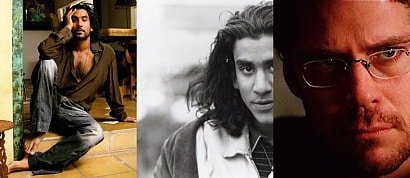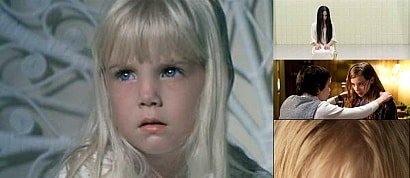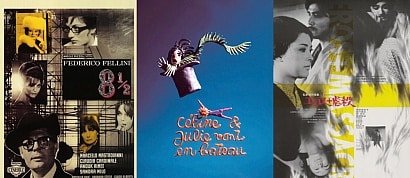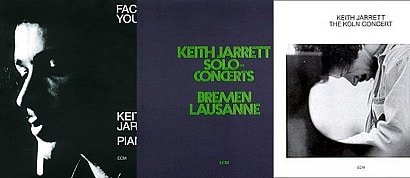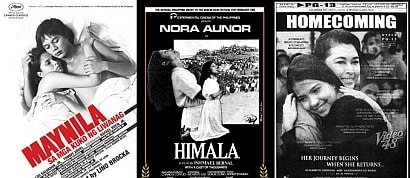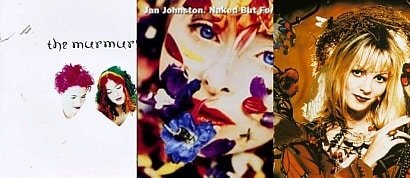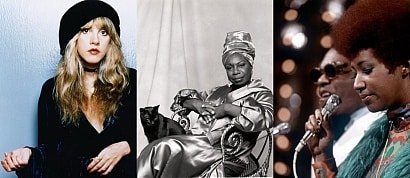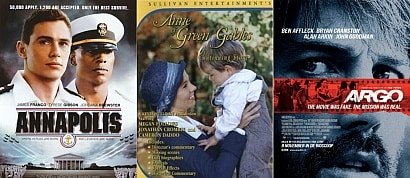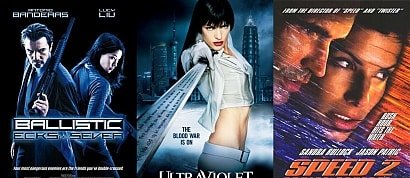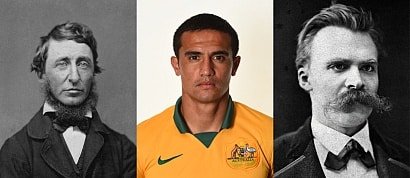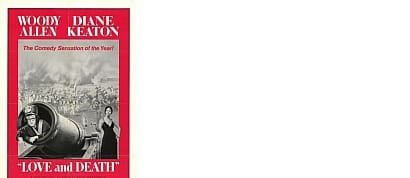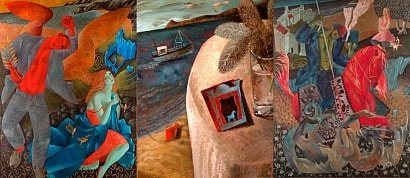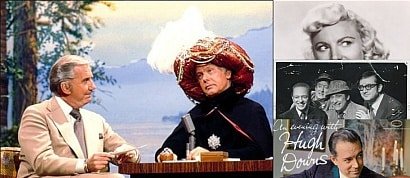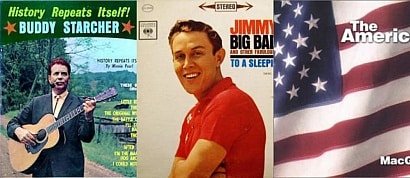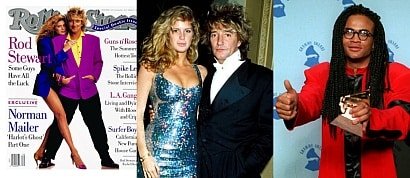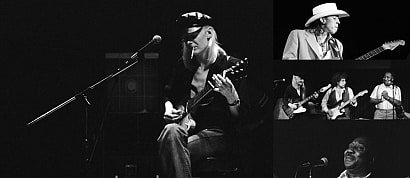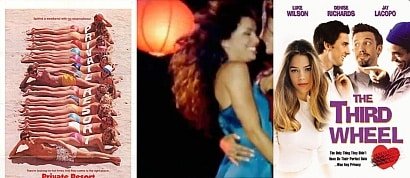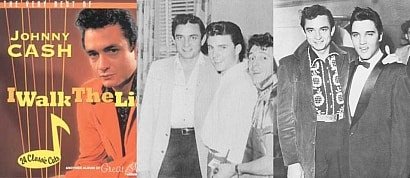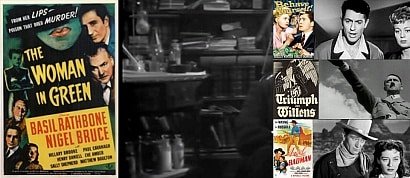Top 10 Classic Country Music Stars
Sort by:
Showing 10 items
Rating:
List Type:
 Add items to section
Add items to section
Hank Williams

Hank Williams died January 1, 1953 at the age of 29. It is truly amazing that such a short life and career span has had such an impact on the music world, and I mean the mainstream music world, not just Country Music.
Hank was born with a God-given gift for creating music and lyrics in his head. He was referred to as the 'Hillbilly Shakespeare' because of the strong emotions expressed in his songs and the fact that he could not read music and did it all in his head.
He began making music at a young age. A childhood friend, known as Teetot, was a street Blues musician and taught Hank to play the guitar. His influence can be seen in a lot of Hank's songs that were Blues-based.
Hank was a prolific writer and has a large catalogue for such a short time. He started out on The Louisana Hayride and later became a member of The Grand Ole Opry. He wrote many diverse songs ranging from good-time Honky Tonking tunes to Lovesick Heartbreak songs to Philosophical Comments on Life recitations under the name of Luke The Drifter.
He was known nationally and his songs regularly made it to the Pop charts as well as the Country. Popular artists covered his songs. A young Tony Bennett, for example, had a big hit with his cover of 'Cold, Cold Heart'. His song 'Move it on Over' is considered by some to be the first Rockabilly song and it was famously covered by Carl Perkins as well as The Beatles.
Hank develped a reputation for being unreliable due to his alcoholism. In addition to that, he also developed a dependency on drugs such as Morphine due to a life-long back condition. His wild behavior during this time lead to a failed marriage and several no-shows at scheduled live performances. The Opry fired him for repeated drunkeness.
Hank died enroute to a performance on New Years Day as a result of alcohol and drugs affecting his heart. Despite his demons, Hank proved to be highly influentual in the world of music and to the artists that were to follow.

I almost put George Jones in the number one postion but, although George had a 6 decade career, I couldn't deny that Hank Williams' influence on music was much greater.
 Add items to section
Add items to section
George Jones

I was inspired to create this list because of the recent death of George Jones. For several years he had been considered a living legend and was praised for his unique vocal style. An early nickname they gave him was Possum or Possum Jones due to his resemblence to an Opossum.
George specialized in the sad, heartbroken songs and he sang them like no one else can. Waylon Jennings once commented that 'If everyone could sound like they wanted, we would all sound like George Jones'. Although known for the sad, lost love songs, George also had hits with some uptempo and even some novelty songs, like 'White Lightning', 'The Race is On', and 'The Love Bug'.
Jones had been a member of The Grand Ole Opry since the 1950's. He has won numerous Country Music Awards and Grammies. Of course, he is in the Country Music Hall of Fame, and was recognized for his lifetime contirbution to the music world with a prestigous Kennedy Center Award. In a career that spaned 6 decades, he had more than a hundred hit singles and over a hundred top albums.
Like many fellow artits, Jones had fought with alcoholism for years before finally beating the bottle in 1999. In the 80's the problem was compounded when he was introduced to Cocaine. His wild antics led to him earning the nickname, 'No-Show Jones' for often missing show dates due to his consumption of alcohol. He made fun of himself with a hit song called 'No Show Jones' from an album he made with Merle Haggard. A favorite story that is told during these years was the time Tammy Wynette, who was married to Jones at the time, hid the car keys from him so he could not go to the liquor store to get more booze. George found the riding lawnmower had keys in the ignition, so he drove the lawnmower on the highway to the liquor store. This has been parodied many times on TV and in music videos with George poking fun at himself. I went to a Jones concert and the MC came to the mike and said,'Folks, I have some good news and some bad news..' Everyone was expecting to hear that George didn't show up. 'The good news is George showed up, the bad news is he is sober'.
His biggest and most famous song came late in his career. In the 1980's he released 'He Stopped Loving Her Today'. The song was the epitomy of the heartbreak songs Jones was known for. It was the perfect example of what he was all about and it became his signature song. It has been very highly rated and was voted among the top country songs ever recorded.

In spite of his wild past, Jones lived to be 81 years old. He was one of a kind, there will never be another one like him.
 Add items to section
Add items to section
Merle Haggard

Merle Haggard tells the story of how he was inspired to pursue a music career while he was in prison and was in the audience of a Johnny Cash prison show in 1965.
Growing up, Haggard was a big fan of Bob Wills and The Texas Playboys and their Western Swing style. He was also inspired by Lefty Frizzell. Haggard covered both artits when he started making albums, including a hit cover of Lefty's 'That's The Way Love Goes' in the 1980s.
In the early 60's Hag (as he is sometimes referred to by friends) was instrumental, along with Buck Owens, in introducing what became known as the Bakersfield sound. An early example of this style would be his hit 'Swingin Doors'.
Most of his early hits were songs he had written about his troubled youth and time spent in jail. Among these are 'Sing Me Back Home', 'Mama Tried', and 'Branded Man'.
Begining in the 1960s, he had a steady string of top hit singles and successful albums that stretched into the mid-80s. With the change in Country Music radio to more Pop-oriented materal, Hag's hits slowed down and eventually came to a halt. He continued to sell out live performances with his almost endless catalogue of hits to mine for his stage shows, but was no longer a presence on Country Top 40 radio.
In addition to albums with his band, The Strangers, Haggard also made albums with his friends like George Jones and Willie Nelson. These resulted in some hit singles like 'Pancho and Lefty' with Nelson.
Merle has won several awards, among them, Country Male Vocalist of the Year a few times. Although his rich baritone has diminished somewhat with age, he still continues to perform and record. When receiving a lifetime acheivement award at a Country Award show, Haggard experessed his gratitude, but went on the state this is the kind of award artists receive at the end of their career, and he wanted to remind everyone that he is still out there. I would tend to believe that Haggard will still be 'out there' as long as he is able to stand and hold a guitar.

It goes without saying that Merle Haggard has been an influence and inspiration to countless musicians that have followed him.
 Add items to section
Add items to section
Johnny Cash

Johnny Cash was a Country Music Superstar, but he was not defined by Country Music. That is too restrictive a classification for an artist like Cash.
After initially writing some songs in the service, Cash came to Sun records in Memphis. His early Rockabilly style with his band, The Tennesse Two, had their pantented 'Boom-Chicka-Boom' sound. Johnny modestly said in a later interview, this was due more to their limitations as musicians rather than any pre-conceived style. Still, they were a tight trio featuring Luther Perkins on the electric lead guitar.
Cash was becoming popular after a few hits with Sun and going on some traveling package tours with acts like The Carter Family, Carl Perkins, and The Statler Brothers. He wanted to make a Gospel album, but Sun owner Sam Phillips would not allow it, fearing that Cash would not be accepted outside the rockabilly style he established at Sun.
Johnny jumped ship and signed with Columbia, who allowed him to record his Gospel album as his Columbia debut release. It turned out to be a huge hit. One of the top selling Gospel albums of all time.
With his new-found artistic freedom, Cash continued to release a string of successful concept albums. He recorded albums of folk songs, Western ballads, and the struggle of the native American. He recorded an album of Americana that included regional songs and narraration called 'Ride This Train'. All this time he continued to have hit singles, but he was one of the first Country Artists to produce albums as a whole statement rather than a collection of singles.
While things were looking good on the music charts, Cash's private life was a mess. He was hopelessly addicted to pills and his marriage was in shambles. During this time, Cash had run-ins with the law and was arrested once for smuggling pills into the US from Mexico. He had the distiction of being sued by the US Government for starting a forest fire in a US Park as a result of one of his binges. Cash was gaunt and thin as a rail from the abuse and it didn't look like he would last much longer.
In the early 60's Cash began a relationship with June Carter, who he knew from his package shows with The Carter Family. She was married to Country star Carl Smith in those days, but had since divorced. Johnny credits June with saving his life by getting him off drugs, although he did have a few relapses since. June co-wrote what became one of Johnny's most recognized hits, 'Ring of Fire' in 1963. It was probably the only country song featuring mariachi horns.
Cash was an early supporter of Bob Dylan and recorded his 'It Ain't Me, Babe', which became a hit for him. Around this time he recorded a song poking fun at the then-current folk music boom with a song called 'The One on the Right(Was on the Left)'. It was included in an album of novelty songs called 'Everyone Loves a Nut', which was also a popular tune.
Although Johnny had some run-ins with the law and spent some time in holding or in the drunk tank, he never served any prison time as is popularly believed. His association with prisons was from his desire to perform for the prisoners at some of our most notorious prisons. This led to his prison tours and two hit albums recorded live at Folsom Prison and San Quentin, respectively. The first album put 'Folsom Prison Blues' back on the charts after being an early hit for Cash in the 50s. The second album contained a new hit written by Shel Silverstein called 'A Boy Named Sue'.
The overwhelming popularity of the back to back prison albums gave Cash a renewed popularity and added a younger audience as well. This resulted in Cash getting his own variety show on the ABC network in 1970. On this show, Cash used the acts that backed him up on his old package tours, The Tennesse Three, Carl Perkins, The Statler Brothers, The Carter Family, and June Carter. Johnny also got to have his musical heroes as guests and he had quite an eclectic group on his shows. The first show had Bob Dylan making a rare TV appearence as well as Joni Mitchell. Through the seasons he had people like Ray Charles, Mama Cass Elliot, Waylon Jennings, Crosby, Stills, Nash, & Young, and he even had a reunion with his old Sun labelmates, Carl Perkins, Jerry Lee Lewis, and Roy Orbinson. Around this time, Johnny gave a young Kris Kristoferson his break by having him on his show and recording Kris' song 'Sunday Morning Coming Down', which became another big hit for him.
After his show left the air, Johnny continued to have hit songs through the mid-80s when Columbia lost confidence in him and cancelled his contract. Johnny kind of struggled after that trying to connect with an audience and the changing tastes in Country Music. He did do two albums with a Country Supergroup known as The Highwaymen that included Cash, Willie Nelson, Waylon Jennings, and Kris Kristoferson.
During these years Cash was known more as an actor and did TV shows like 'Little House on the Prairie' and TV movies, like the acclaimed 'The Pride of Jesse Hellam'.
Johnny started having health issues as he aged. His voice lost the booming deep baritone he was known for. It was at this point that he said screw Nashville and went independent with American Recordings. These albums were huge hits and that is a testament to Cash's appeal, but they were mostly all covers of old hits and Cash's voice was certainly not what it used to be.
His final hit before he passed away(months after June's death) was a cover of Nine Inch Nails' 'Hurt'. The video was very popular and was very bittersweet. It was almost as if Cash was saying goodby to everyone.

Whether it be for Rockabilly, Folk, Country, or just plain Johnny Cash Music, He is one legend that will never be forgotten.
 Add items to section
Add items to section
Willie Nelson

Willie Nelson is another living legend of Country Music. After growing up in Texas, he bacame a DJ and part-time performer, who came to Nashville to break into the music business. He had initial success as a songwriter. Some of his songs were big hits for other performers like Faron Young, Patsy Cline, and Ray Price.
This led to Ray Price hiring Nelson as bass player in his band, The Cherokee Cowboys. In spite of the success of his songs, when it came time for Willie to cut an album under his own name, it didn't sell.
It was thought that Nelson's singing voice was not marketable. One music executive described Willie at the time as having 'The soul of a poet and the sale-ability of a polecat'.

Willie continued plugging away and continued releasing albums that didn't sell. Willie was frustrated with the lack of artistic control that Nashville allowed. In those days in Nashville, the producer did everything. They arranged the songs, picked the studio musicians they wanted, and added strings to sweeten the record and give it the 'Nashville Sound'. Willie didn't like what the were doing to his songs and he wanted his band on the record, not a bunch of studio musicians. He saw he was fighting a losing battle and gave up, moving to Austin, Texas.
It so happened that Austin was in the middle of a homegrown hippie music movement. Willie started a band and started appearing regularly at the Armadillo World Headquarters, which was a venue for all the new bands coming up. This gave Nelson a whole new, younger audience. He soon became something of a local hero around Texas, although not yet widely known nationally. By this time he had adopted the 'Hippie Look' of long hair, full beard, and his trademark bandana. While most Country artists were still wearing sequined cowboy suits and fancy boots, Willie took to the stage in tee shirts, jeans, and tennis shoes. He also used Jazz influenced vocal phrasing and picked a classical guitar with nylon strings.
Record companies began to notice the exictment in Texas with PBS showcasing the series 'Austin City Limits' featuring acts like Nelson, Jerry Jeff Walker, and David Allen Coe. Nelson had the distinction of signing on as the first, and only, country artist on Atlantic Records' newly created Country division.

It should be noted here that this is what is referred to as an Outlaw Country Musician. It had nothing to do with breaking the law or being a criminal, it just means creating Country music 'outside' the Nashville system, thus considered outlaw music.
Willie's two albums on Atlantic really set him off in a new direction. His first was called 'Shotgun Willie' and contained his classic 'Whiskey River', plus more great songs the way he wanted them to sound with the band he played with live onstage. His follow up was a concept album about a marriage breakup. Side one had the woman's perspective and side two have the man's take on things. It incuded the hits 'Bloody Mary Morning' and 'Its Not Supposed to be That Way'. although this was a fine album, Atlantic decided to pull the plug on their Country division, with Willie Nelson as the one and only Country artist that was ever on it.
RCA records had their eye on Nelson and offered him complete artistic freedom to sign with them. This led to Nelson's Breakthrough to national fame with another concept album called 'The Red Headed Stranger'. RCA was very nervous about this very sparse album. A lot of songs featuring only Nelson and his guitar. One rare song not written by Nelson was a cover of the old Country classic 'Blue Eyes crying in the Rain'. It featured only Nelson and guitar, but it became a huge grammy-winning song as did the album.
Nelson also appeared on the compilation album 'Wanted: The Outlaws' with Waylon Jennings, Jesse Colter, and Tompall Glaser. This produced the hit song written and sung live by Waylon and Willie, 'Good Hearted Woman'.
From this point on, Willie began recording and releasing albums at a very rapid rate. His freedom to record whatever he wanted led to some interesting choices. He recorded an album of Jazz classics from the American Songbook that appeared to be a pet project that would not sell. It turned out to be a huge hit. The album was called 'Stardust' and it was one of his best sellers.
He also used the oppertunity to record albums with some of his favorite artists and country music heros, like Merle Haggard, Web Pierce, Ray Price, and Leon Russell. He recorded an album of Lefty Frizzell songs and an album of Kris Kristofferon songs. He also cut singles with Ray Charles, and Julio Englesias. His sales were so good he had the luxury of recording whatever he wanted, whenever he wanted and didn't care if it sold or not, as long as he liked it.
Around this time Nelson's easy charm and laid-back likablity seemed perfect for the big screen. He debuted as a cowboy (what else?) in the Robert Redford movie, 'The Electric Horseman'. He later starred in his own movie 'Honeysuckle Rose', which was a really just a vehicle for Nelson to showcase his music while portraying a very 'Willie-like' Country performer. The soundtrack contained Nelson classics, plus 2 new hits, 'Angel Flying Too Close(to the ground)' and the more popular 'On the Road Again'. Willie made several more appearences in both TV movies and big screen, like the western, 'Barbarosa' with co-star Gary Busey.
Just when it seemed Willie could do no wrong, he got a notice from the IRS that he owed Millions in back taxes. It seemed the people handling his money had not been paying the taxes, leaving Willie in a bind. He released a special album with all sales going to the IRS called 'The IRS Tapes'. After years of working things out and selling some of his valuables, it was finally settled to the IRS' satifaction, but was a major setback for Willie.
Willie continues to record whenever and whatever he wants, as well as tour occassionally. He has become a vocal supporter for NRML. He has helped develope a clean bio-fuel that is based on vegetable oil. He has his tour bus converted to run on it.

It goes without saying that Willie has won a ton of awards and is looked upon as both a living legend and an elder statesman of Country Music as he aproaches his 80th birthday.
 Add items to section
Add items to section
Buck Owens

Those of you who only know Buck Owens from the TV show 'Hee Haw' do not know the real talent this man had.
In my opinion, his music was declining in quality at that point and 'Hee Haw' only served to cheapen his legacy. It made him appear as a corny buffoon. But that is just my opinion.
Buck started getting noticed in the late 50s. He formed a band called The Buckeroos. Along with Don Rich on the electric Fender Stratocaster and singing harmony on the chorus, they developed a style of Country Music that would come to be known as 'The Bakersfield Sound'. Early Merle Haggard songs were done in this style as well. Some of the old songs are hard to tell if it is Buck or Merle at first.
The Buckeroos were a good tight band in their own right. This was evident when they recorded an all-instrumental album that contained the hit that became their theme song, 'Buckeroo'.
Buck and the boys had a string of country hits throughout the 60s that went to the top of the Country charts. Buck was always giving Don Rich as much credit as himself for creating the sound. He often said that without Don, he would not have made it and that Don was as much responsible for the hits as he was.
Buck and The Buckeroos got their own syndicated TV show in the mid 60s. It was a serious music show that began each week with The Buckeroos breaking into their theme song. They were one of the first Country acts to play Carnegie Hall in New York City. They made a popular album with recordings from that show.
Buck's influence was felt by a new generation of Country artists like Rodney Crowell, who covered Buck's 'Above and Beyond' on his hit album 'Diamonds and Dirt' and Dwight Yoakum, who recorded 'Streets of Bakersfield' in a duet with Owens himself.

I am sure Buck had been awarded many gold records, but I somehow don't feel he ever got the recognition he really deserved. His early music really kicked ass and he is mostly remembered for 'pickin and grinning' with Roy Clark on 'Hee Haw'.
 Add items to section
Add items to section
Webb Pierce

Webb Pierce had the kind of voice that people who say they don't like country music associate with Country music. A high pitched nasal whine may be how they would describe it, but to us true believers, it is a cry from heaven.
Webb was one of the original Honky Tonk Heroes with songs like his famous hit 'There Stands the Glass' and his flashy Nudie Cowboy outfits.
Webb is remembered for his biggest hit 'In The Jailhouse Now' and for his flashy lifestyle that included not only the Nudie suits, but Cadillac convertibles cutomized with inlaid silver dollars and a gutiar shaped swimming pool.


Pierce came up from The Ozark Jubilee and The Louisana Hayride like Hank Williams and was asked to join the Grand Ole Opry in 1953 to fill the spot left open when they fired Hank.

When Pierce died in 1991, he had a total of 96 hits including favorites like 'Wondering', 'Why, Baby, Why', 'Back Street Affair', 'More and More', 'Any Old Time', and 'I Ain't Never'.
 Add items to section
Add items to section
Lefty Frizzell

Another popular Honky Tonk singer was Lefty Frizzell, whose singing style was an influence to later stars like Merle Haggard, Willie Nelson, and Roy Orbinson.
Lefty begin making music as a child and, as he grew up, paid his dues working the Honky Tonk nightclub circuit. This led to his own local 1/2 hour radio show and eventually a recording contract with Columbia that immediately resulted in a string of top 10 Country hits, including many at number 1.
In a switch to the usual path, Lefty was asked to appear on The Opry in 1950 and later appeared on Louisana Hayride. He toured with Hank Williams, billed as the 'Kings of Honky Tonk'.
Like many other performers, alcoholism was a problem. Irrational mood swings and failure to meet commitments strained his relationship with the record compamies.
A member of The Nashville Songwriters Hall of Fame, received a Gammy Hall of Fame Award for his song,'If You Got the Money, I've Got the Time'. Other famous hits include 'I Love You a Thousand Ways', 'Saginaw, Michigan', 'Always Late', 'Long Black Veil', 'I Never Go Around Mirrors', and 'She's Gone, Gone, Gone'.

Lefty was posthumously inducted into the Country Music Hall of Fame for his lifetime achievement and influence on the artists who followed.
 Add items to section
Add items to section
Jimmie Rodgers

Rodgers was more of a pioneer of what became known as Hillbilly or Country Music. His music was mostly based on the Blues and incororated the Country yodeling style as well.
He is known as 'The Father of Country Music', 'The Blue Yodeler', and most popularly as 'The Singing Brakeman'.
Rodgers was among the first Country Music superstars and pioneers in the early 20th century. His official career only lasted from 1927 until his death from TB in 1933, but he left behind a legacy of songs and served as an influence to many future performers.
Among his best-known songs are 'Blue Yodel (also known as T for Texas)', 'Waitin' for a Train', 'Treasures Untold', 'Hobo Bill's Last Ride', 'No Hard Times', and 'TB Blues'.
When the Country Music Hall of Fame and Museum was established in 1961, Rodgers was one of the first three (the others were music publisher and songwriter Fred Rose and singer-songwriter Hank Williams) to be inducted. Rodgers was elected to the Songwriters Hall of Fame in 1970 and, as an early influence, to the Rock & Roll Hall of Fame in 1986. "Blue Yodel No. 9" was selected as one of The Rock and Roll Hall of Fame's 500 Songs that Shaped Rock and Roll. Rodgers was ranked No. 33 on CMT's 40 Greatest Men of Country Music in 2003. In 2013, Rodgers was posthumously inducted to the Blues Hall of Fame.

Rodgers' influence can also be heard in artists including Tommy Johnson, the Mississippi Sheiks, and Mississippi John Hurt, whose "Let the Mermaids Flirt With Me" is based on Rodgers’ hit "Waiting On A Train". Elvis Presley has also been quoted as mentioning Jimmie Rodgers as an important influence and stating that he was a big fan. Jerry Lee Lewis listed Rodgers as a major stylist and covered many of his songs. Moon Mullican, Tommy Duncan and many other western swing singers also were influenced by him. Gene Autry's earlier material largely copied Rodgers' blues records.
 Add items to section
Add items to section
Ray Price

Ray Price formed his band, The Cherokee Cowboys in the early 50s. He became known for his rich, baritone singing voice and developed a Honky Tonk style incorporating a 'Shuffle Beat' that became the trademark of his early style.
Members of the band in the late 50s and early 60s included future stars Roger Miller, Johnny Paycheck, and Willie Nelson. Miller wrote Price's hit 'Invitation to the Blues' and Nelson wrote his hit 'Night Life'. His most well-known song in this shuffle beat style was 'Crazy Arms'. Another famous hit that was later covered by Englebert Humperdinck was 'Release me'.
In the 1960s, Price experimented more and more with the 'Nashville Sound' and recorded some lush ballads with backup singers and lush string arrangements. The best song in this style was his huge 1970 hit 'For The Good Times', a song written by Kris Kristofferson.
I personally prefer his ealy style, but have to admit his voice fit the slow ballads perfectly. The last album he worked on was called 'Last of the Breed' with Willie Nelson and Merle Haggard in 2007. The trio went out on a mini-tour to support it.
The 87 year old singer is currently fighting cancer with chemo treaments.

Ray with Roger Miller at The Grand Ole Opry
Source: This list was created mostly from memory, however, some of the facts for Lefty, Jimmie, and Ray were taken from Wikipedia.
People who voted for this also voted for
Period Films
Dragons
Men Who Look Better With Beards
Creepy Kid Alert!
Favorite Surreal Films
Keith Jarrett Solo Piano Discography
Filipino and Indonesian Films I've watched
cute and lovely album by female vocal
Favorite Female Singers
Collection: War Time
WatchMojo's Top 10 Worst Action Movies
Personal Anthology (favorite lists created by me)
Favorite Non-Fiction Authors & their Best Books
History According to Woody Allen
Welsh Artists: Clive Hicks-Jenkins
More lists from blankend
Famous Second Bananas of TV
Top 10 Songs that Aren't Sung
Rock N Roll Timeline 1990-1999
ICONIC IMAGES OF MUSIC LEGENDS — THE BLUES
Biggest Flops of A-List Stars
Johnny Cash and...
10 Full-Length Films to Watch Online For Free
 Login
Login
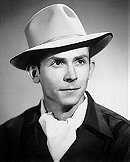
 7.8
7.8
 0
0
